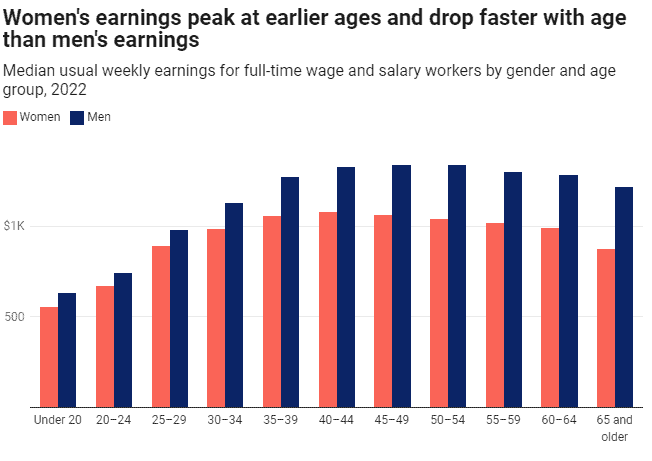Economic Advancement for Older Women in the Workplace
A new report by Center for American Progress dives into the challenges faced by older women in the workplace including occupational segregation and age discrimination. It highlights that older women are less likely to be promoted, receive raises, or find new jobs compared to younger women and men. This can be attributed to factors like being steered towards certain occupations and caregiving responsibilities.

Source: Authors’ calculations based on Sarah Flood and others, “Integrated Public Use Microdata Series, Current Population Survey Data for Social, Economic, and Health Research: Version 10.0 (dataset)” (Minneapolis: Minnesota Population Center, 2022) available at https://doi.org/10.18128/D030.V10.0.
Chart: Center for American Progress
The report proposes policy solutions to address these challenges including:
- Strengthening protections against age discrimination: Current anti-discrimination laws are not enough to ensure equal opportunities for older women. The report recommends strengthening these laws to make it more difficult for employers to discriminate against older workers.
- Increased access to training and upskilling opportunities: As the workplace continues to evolve, older women may need additional training to stay competitive. The report recommends that policymakers invest in programs that provide older workers with the skills they need to succeed in today’s economy.
- A higher minimum wage: A higher minimum wage would benefit all workers, but it would be particularly helpful for older women, who are more likely to be working in low-wage jobs.
By implementing these policy solutions, we can help older women secure good jobs and achieve economic security. Read the full report here.
